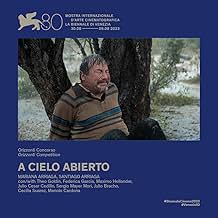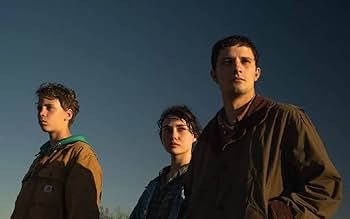The same clichés as his father Guillermo Arriaga but very bland and with pretensions of auteur cinema. It is difficult not to notice that the shadow of Guillermo Arriaga's films is present in every minute of the film:
- the rustic north as a setting (Babel and the Three Burials of Melquíades Estrada, the novel Salvar el fuego),
- the protagonist with an imperious need to go "to the north" (the novel El Salvaje),
- characters with no apparent psychological evolution (Babel),
- the snooping of a minor always towards his sister (Babel),
- the theme of hunting (Babel),
- amoral sexual relations (like Octavio's love affair with Susana in Amores Perros),
- the moral superiority of the bourgeoisie (like in El Salvaje, Salvar el Fuego, 21 grams, or Las extrañas),
- a nondescript working-class character who commits an unintentional murder and cries for mercy on his knees from the bourgeoisie (like Jack Jordan in 21 grams),
- forgiveness as the culmination of the
- the expressionless protagonist, crude in his interpersonal dealings, solitary - and who makes one think of a certain autism - but who is morally superior to the average character (like Manuel in El Búfalo de la Noche, Juan Guillermo in El Salvaje, José Cuauhtémoc in Salvar el Fuego)
- and of course the theme of revenge (Amores Perros, Babel, 21 grams, El Salvaje, Salvar el fuego).
All these themes are mixed here in a blender without lactose, without caffeine, without any emotion. There is no real contribution to cinematography in any sense, only "bread with the same". The only thing that stands out is the need to show the public that Arriaga's children are going to continue with the same themes as their father and that there will be no evolution.

![Trailer [OV] देखें](https://m.media-amazon.com/images/M/MV5BN2Y4NWFjNGQtM2U2My00MTY1LThhZmYtNGY2ZDZkZDI0YTkwXkEyXkFqcGdeQXRyYW5zY29kZS13b3JrZmxvdw@@._V1_QL75_UX500_CR0)




















